NDI Global Roundtable Series
Race and Building Communities of Belonging: Perspectives from the U.S., the U.K., and Brazil
Co-sponsored by the Department of Africana Studies, the Department of Political Science, the Notre Dame Law School, and the Kellogg Institute for International Studies.
Notre Dame International invites all members of the Notre Dame community and friends of the University to its virtual Global Roundtable Series dedicated to internationalizing conversations on issues of vital importance.
The July 16 roundtable will focus on ‘race and social inclusion’ and will feature perspectives from three countries with long-standing and significant race issues: the U.S., the U.K., and Brazil. Among the questions to be addressed: What are the challenges to building communities of belonging in these three national settings? In particular, what are the special obstacles that black citizens face? In what ways are these obstacles similar and different in each of the three countries? What can we learn from efforts to promote racial equity and justice in each? What are the opportunities at this moment in history and how can we ensure that efforts to promote greater equity, justice, and social inclusion are sustained? How might faith communities contribute? What role might universities play, particularly a Catholic university like Notre Dame?
Host: Rev. Robert Dowd, C.S.C.*, assistant provost for internationalization and associate professor of political science, University of Notre Dame.
Moderator: Professor Dianne Pinderhughes**, chair, Department of Africana Studies and professor of political science, University of Notre Dame.
PLEASE NOTE: Indicated event times are U.S. Eastern Time.
Panelists
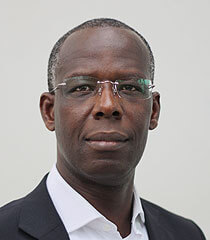
Michael Addo is director of the London Global Gateway Law Program. Addo has previously worked at the University of Exeter as an International Law and Human Rights Specialist with more than 25 years of experience in research, teaching, and policy advice. Outside of university postings, he has held several leadership positions with the United Nations. The UN Human Rights Council appointed him in 2011 to join its Working Group on Business and Human Rights, a body he currently chairs. He has also served as chairperson of the Co-ordination Committee of United Nations Special Procedure Mandate Holders from 2015 to 2016. Originally from Ghana, he holds a diploma in international human rights law from the International Institute of Human Rights at the University of Strasbourg, France, and obtained master of law and doctoral degrees at the University of Essex in England.
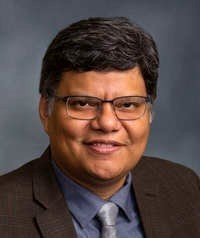
Marcio Bahia was born in Belém, Pará, in the Brazilian Amazon Region. Professor Bahia specializes in Brazilian Literary and Cultural Studies. More particularly, his current research focuses on the tecnobrega music scene. Tecnobrega, a musical genre that splices largely original work with popular music. Bahia studies how technology is adopted in the tecnobrega scene and how it is used in the ongoing process of cultural legitimization of the rhythm. On the topic, Professor Bahia has published “The Periphery Rises: Technology and Cultural Legitimization in Belém’s Tecnobrega.” in Ellipsis 13 (2015):33-54, the Journal of the APSA (American Portuguese Studies Association). He is also currently working on a book-length manuscript tentatively entitled “Tecnobrega and other revolutions: technology and cultural legitimization in the Brazilian peripheral music scene.” Professor Bahia teaches courses in Portuguese Language and Brazilian Literature, Culture and Society, such as Brazil Beyond Stereotypes, Race and Social Inequality in Brazil, Brazilian Literary Modernism and Brazilian Cinema: Introduction to Film Analysis.
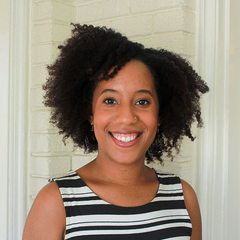
Deandrea Cadet is a social entrepreneur and diversity educator. She serves as the Cofounder and Executive Director of InterAction Initiative Inc., working alongside young people of color to develop sustainable strategies for inclusion. As a Haitian-American Midwest transplant from Newark, NJ, she notes that she is still in the process of understanding the complexities of her own identity and story. In 2018, she was named a Dalai Lama Fellow in recognition for her social change leadership. She graduated cum laude from the University of Notre Dame in 2015 in Political Science and Peace Studies. While at Notre Dame she was a Kellogg Institute International Scholar, Franklyn E. Doan Scholar, and Frazier Thompson Scholar. Deandra is a diversity educator, social entrepreneur, and an activist in social justice work within her local South Bend Community.
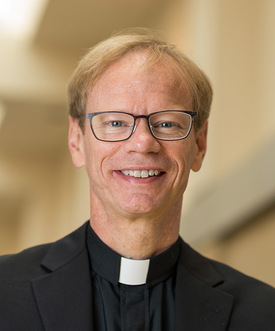
*Rev. Robert Dowd, C.S.C., associate professor of political science, assumed the position of assistant provost for internationalization with Notre Dame International in February, 2020. His primary responsibilities include leadership of the Dublin Global Gateway, Kylemore Abbey Global Centre, and the São Paulo Global Center; and future engagement with Africa.
Father Bob is a Notre Dame graduate with a PhD in political science from UCLA. His research interests include African politics, ethnic politics, and the relationship between religion, political institutions, national identity, and human development. He is author of the book, Christianity, Islam and Liberal Democracy: Lessons from sub-Saharan Africa (Oxford University Press, 2015), and several articles on African politics. He is currently focusing on research concerning religion and the integration of migrants/refugees in Europe and North America and the effects of faith-based schools on citizenship and civic engagement in Africa.
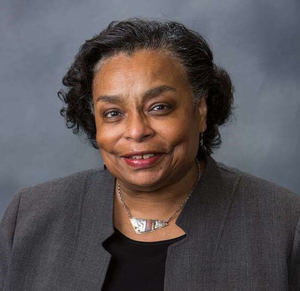
**Professor Dianne Pinderhughes is Notre Dame Presidential Faculty Fellow, chair of the Department of Africana Studies, and professor of political science. She holds a concurrent faculty appointment in American Studies, is a Faculty Fellow at the Kellogg Institute, and is a Research Faculty member in Gender Studies at the University of Notre Dame. Her research addresses inequality with a focus on racial, ethnic and gender politics and public policy in the Americas, explores the creation of American civil society institutions in the twentieth century, and analyzes their influence on the formation of voting rights policy.
Pinderhughes’s publications include Uneven Roads: An Introduction to US Racial and Ethnic Politics (co-author; 2014); Race and Ethnicity in Chicago Politics: A Reexamination of Pluralist Theory (1987); Black Politics After the Civil Rights Revolution: Collected Essays (forthcoming); Contested Transformation: Race, Gender, and Political Leadership in 21st Century America (co-author; 2016). She was President of the American Political Science Association 2007-08; the APSA Task Force she appointed, completed its report: Political Science in the 21st Century in 2009. Pinderhughes was 1st Vice President of the International Political Science Association and was Co-Chair of its 2016 World Congress in Poznan, Poland.
Originally published at international.nd.edu.